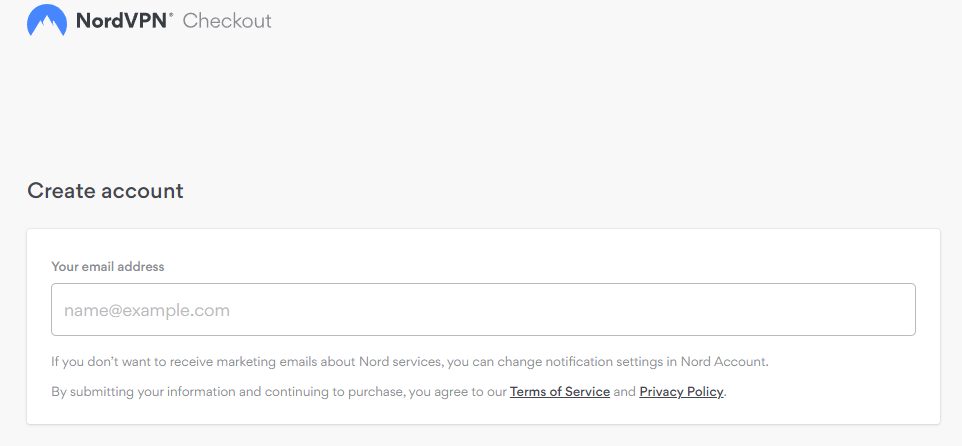Did you decide to purchase NordVPN? Do you wonder: Does NordVPN Protect You From Viruses?
In this article we will show you step by step how to make a purchase of new NordVPN subscription, set up account and start using NordVPN software! After guide we will answer some questions regarding using an VPN app.
Table of Contents
Here is how to purchase a NordVPN subscription
- Start by visiting NordVPN website, you can click here.
- Click on pricing tab at the top of the page, here you can see current plans, pricing and deals. Choose which NordVPN plan you prefer to purchase and then click “Get *name of the plan* button.
You can choose between standard plan (pure NordVPN service) or other plans that comes with NordPass or NordLocker services.
- Now you have to type your email adress that you will be using NordVPN with.

- Now you have to choose payment method which you want to use, and proceed with it.
- Well done! If you followed this guide nicely you purchased NordVPN subscription! Look at your email inbox, here you will find purchase confirmation email.
Now download NordVPN APP and start using it
After purchasing your VPN plan, head to this page to download the NordVPN app
Now you can click start and enjoy using VPN!
Click here to get the Best NordVPN Deal! 🔥Let’s get back to main question, Does NordVPN Protect You From Viruses?
NordVPN encrypts your internet traffic with strong AES-256 encryption, ensuring that your data is protected from prying eyes. Furthermore, NordVPN employs strict security protocols such as PPTP and L2TP/IPSec, which provide an extra layer of protection against viruses and malware. Overall, NordVPN is an effective tool for keeping your computer safe from viruses and other threats when browsing the web.
Worth knowing
A VPN is a tool that routes your internet traffic through an encrypted connection so that your data is protected from eavesdroppers. This means that anyone trying to intercept your traffic will only see gibberish instead of your actual data.
In addition to providing encryption, a VPN can also change your IP address so that it appears as if you are accessing the internet from another location. This can be useful for accessing geo-blocked content or bypassing government censorship.
So now that we know what a VPN is and what it does, let’s answer the question: can you get viruses while using a VPN?
The short answer is: no, you cannot get viruses while using a VPN. This is because all of your data is encrypted before it leaves your device, so even if there was malware present on the server you were connecting to, it would be impossible for it to infect your device or steal your data.
Of course, this doesn’t mean that you should never use antivirus software. While a VPN will protect you from malicious actors who are trying to intercept your traffic or steal your data, it won’t protect you from things like phishing attacks or unsecured websites where you could inadvertently enter sensitive information (like login credentials). That’s why it’s always important to have up-to-date antivirus software installed on all of your devices and to practice good cyber hygiene in general.
Worth knowing
Worth knowing
If you are concerned about being spied on, then using a VPN could help to reduce the chances of this happening. A VPN encrypts your data and routes it through a secure server, making it much more difficult for anyone to intercept and view your traffic.
Of course, no system is perfect andVPNs are not impenetrable. If someone really wants to spy on your traffic, they may be able to do so if they have access to the right tools and resources. However, using a VPN can certainly make it harder for anyone to snoop on your activities.
So, if you are worried about being spied on online, then using a VPN could be a good idea. Just remember that they are not foolproof and should not be relied upon as your sole source of protection.
